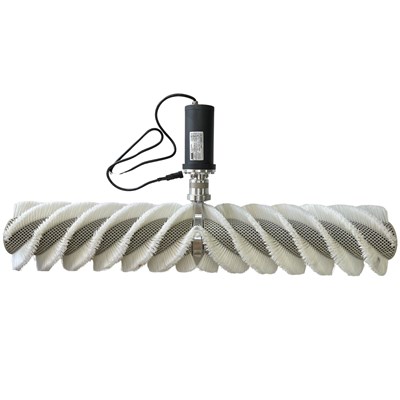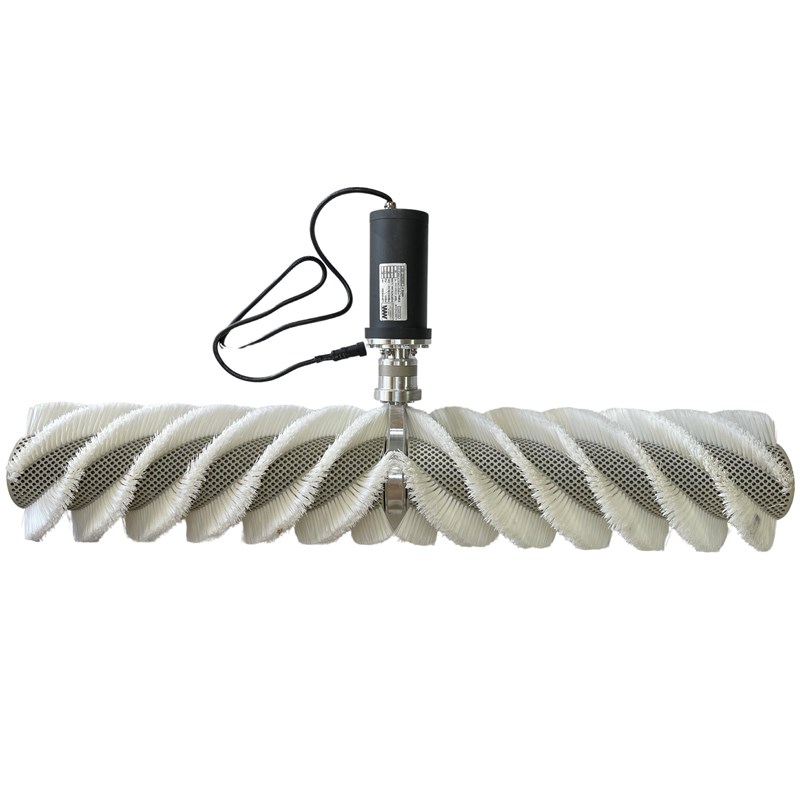Rotary Brush 39 in (100cm) Electric
Quick Overview
- Designed to clean Solar Panels, Glass Atriums, Glass Porticos
- It is a mobile, hand-controlled scrubbing brush designed to be controlled by an operater from 5 to 25 feet away
- Electric powered brushes save considerable time compared to traditional Water Fed pole brushes
- Requirements: Plugs into standard 110v power system and needs between 1.7 to 3 gallons per minute clean water supply, Just add a pole, pole hose kit and a power cord.
- This Electric Rotary Brush can be used with tap water pressure or the feed water can be boosted using a wash pump or boost pump
Show More
$3,460.60
$3,971.80
Rotary Brush 39 in (100cm) Electric
For Cleaning Large Surfaces, Solar Panels, Atrium Glass, large flat surfaces.
This is the Electric Brush and Power Supply Only.
This brush is powered by a standard 110v Power cord and consumes less than 4 amps (450 watts) of power and can be run easily on a small 800watt generator.
- 110v Power Source at 4 amps
- 400 watts are required to run the brush
- The power supply included has a 400 watt capacity at 30v
- 2 to 3 Gallons per minute consumption RO Purified water recommended for Solar Panels, though some jobs may be cleaned with Tap water and other sites may specify Deionized water.
Pure Water from the ProTool Ultra/Max Carts or a Pure Water Skid.
A Skid Systems can offer more water flow for faster cleaning and create Pure Water into a Holding Tank and Deliver the Water to the brush by using the ProTool Dual Pump High Flow Pump Plate.
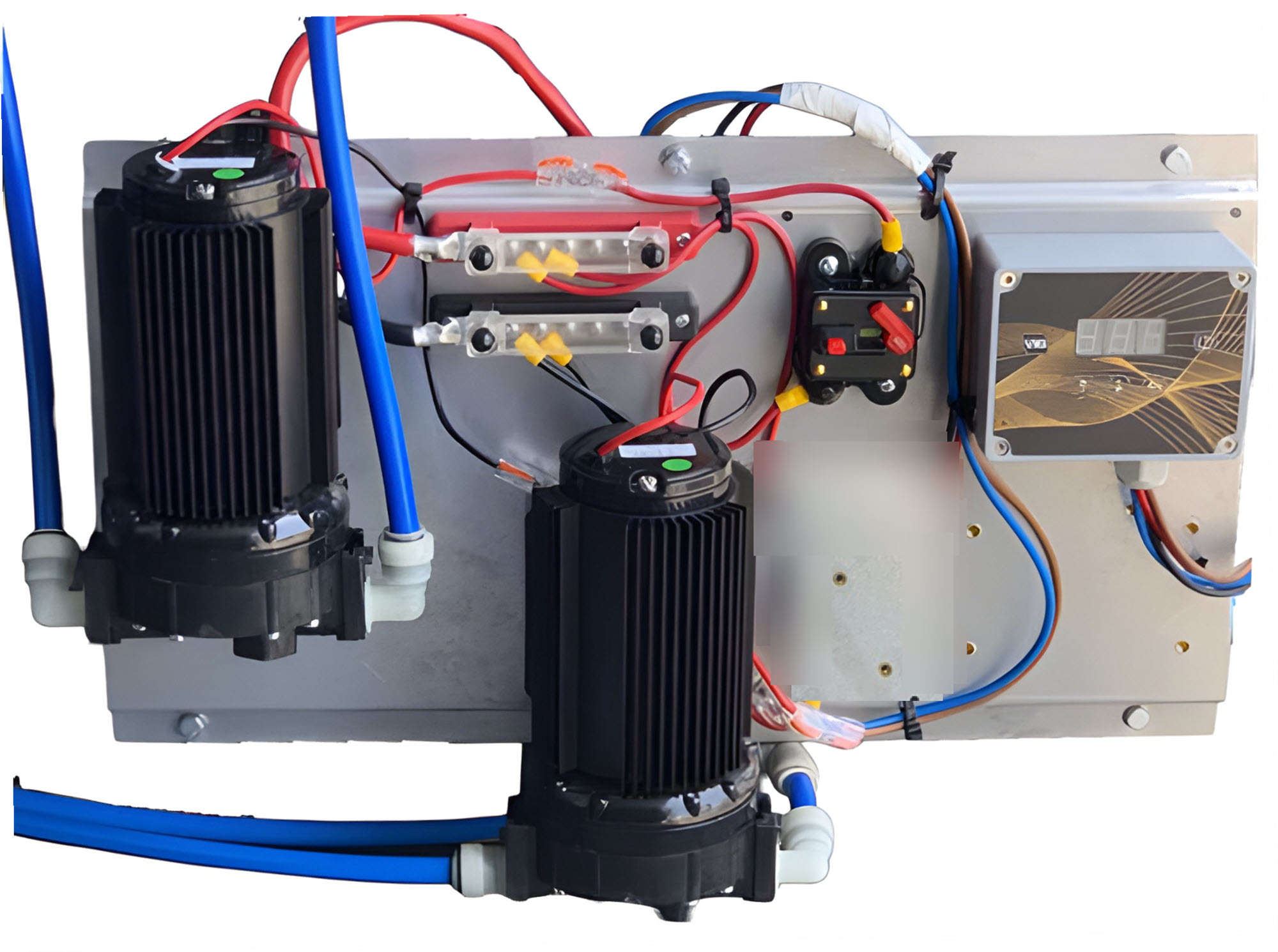
Dual Pump High Flow Pumps System

Example Hose Connection for Water-Fed pole and Garden Hose connection 74-3625
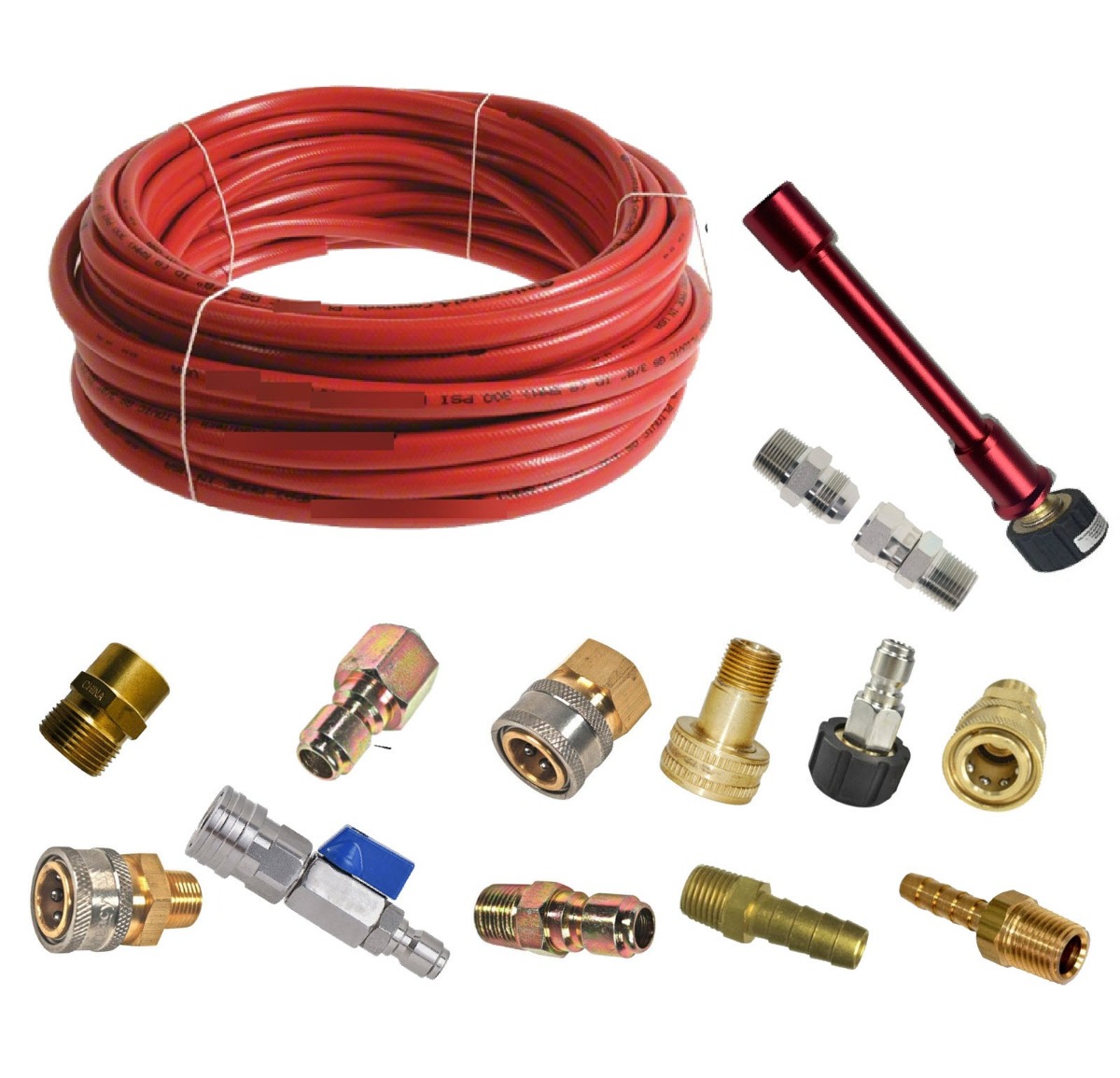

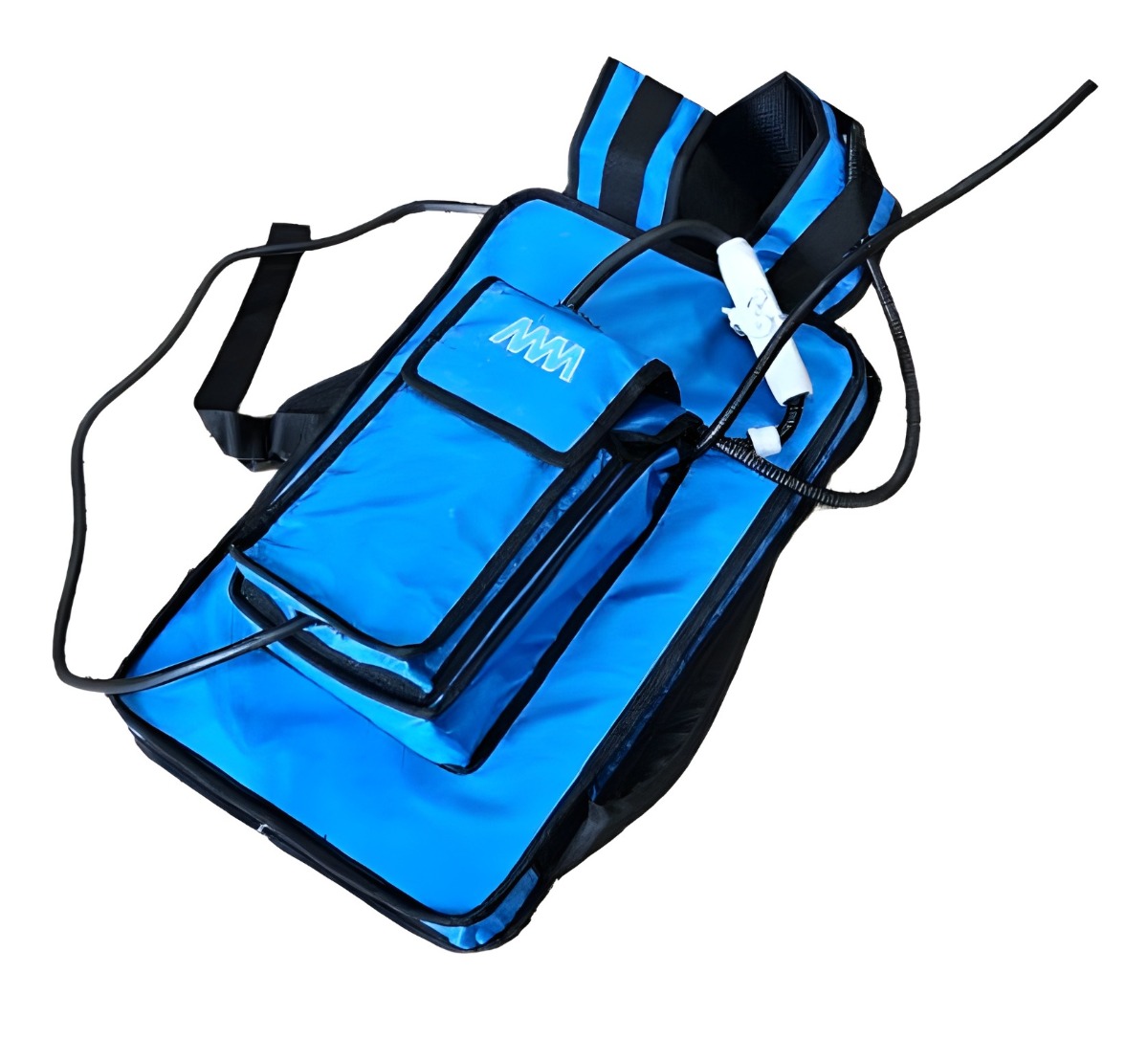
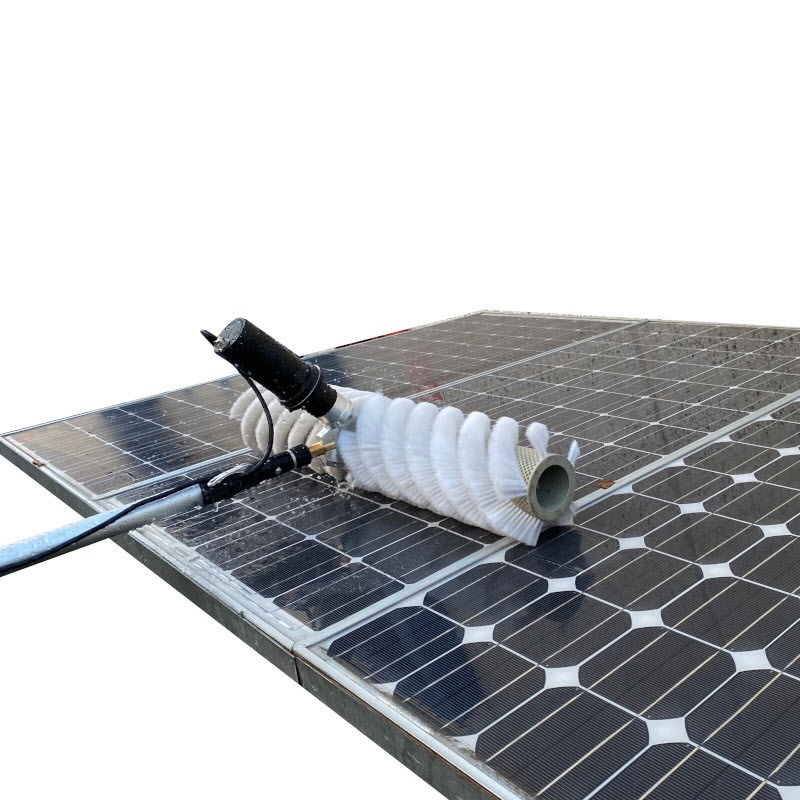
We recommend the ProTool Oval Solar Pole for supporting and using this rotary brush. This is a 27ft pole that offers the connections and hose to operate this brush. Link Here
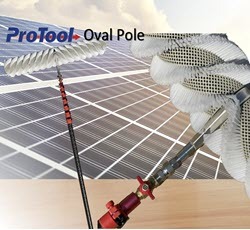
Consider the complete Kit if you do not have a pole for your brush
Note:
Water coming out of the center when the brush is off the panel and not rotating is expected performance.
The rotating brush with the spiral bristles move the water (and dirt) out of the center and to the outside, you want more water in the middle to start the process.
The Electric Brush is powered by a standard 110v Power Cord
A 110V 200ft (or more) Power Cord cord is used to reach the cleaning area.
The included 110v, 30v Power Supply, 400watts, is included with the brush and is stored in the backpack with the power block.
(The 110v Power cord is sold separately)
Optional 12v Battery Power Systems - (Not Included with the Rotary Brush)
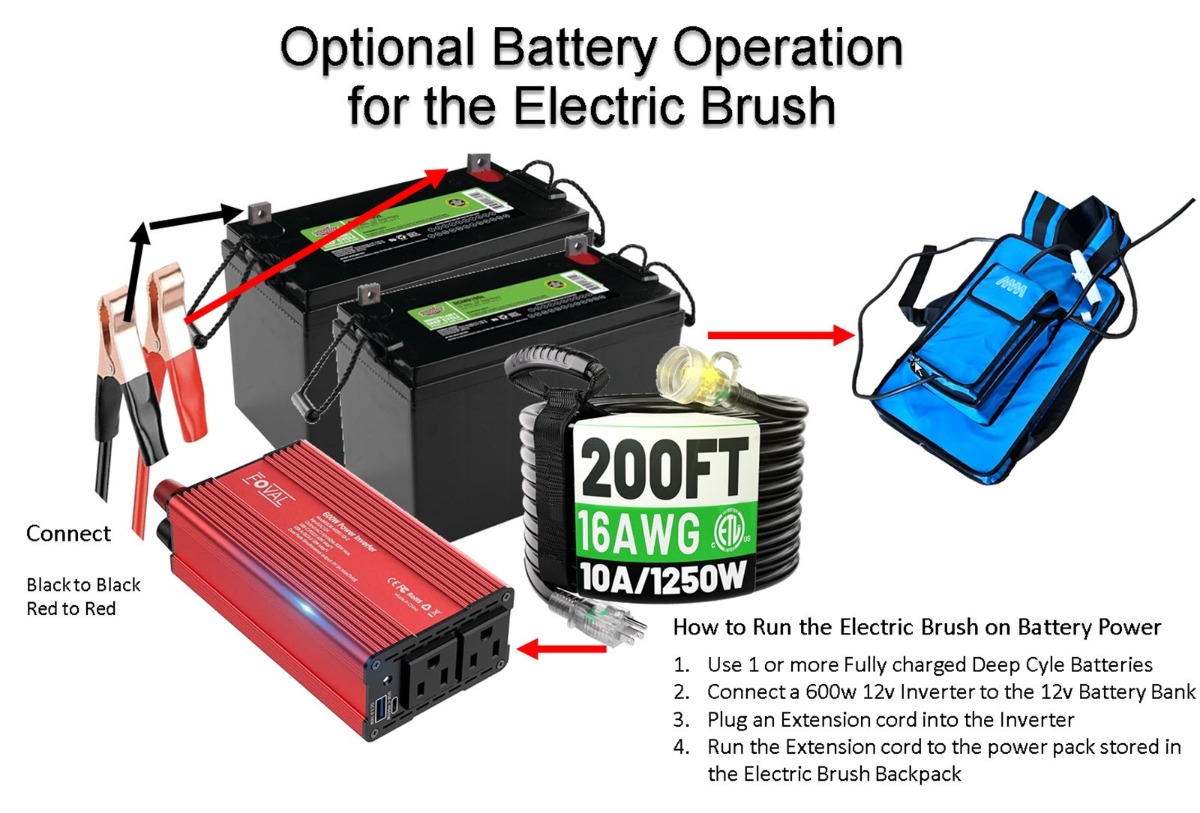
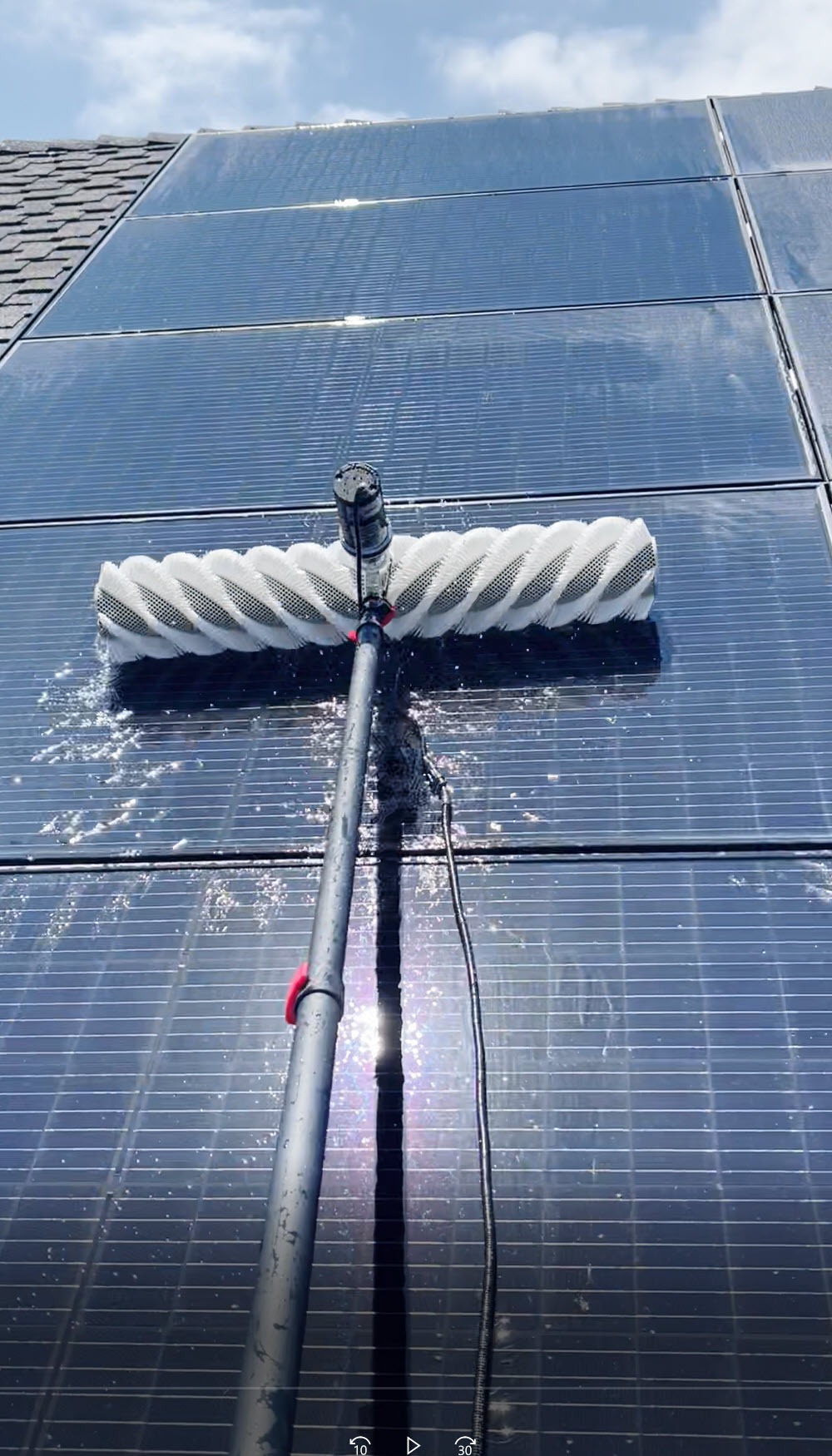
Instructions for Use:
- Connect the brush to the telescopic pole or pressure washer lance.
- Position the unit on the surface to be cleaned.
- Open the water valve on the telescopic lance.
- Turn on the Power Switch to the desired rotation direction
- Begin cleaning the surface.
-yH7dv1.png)
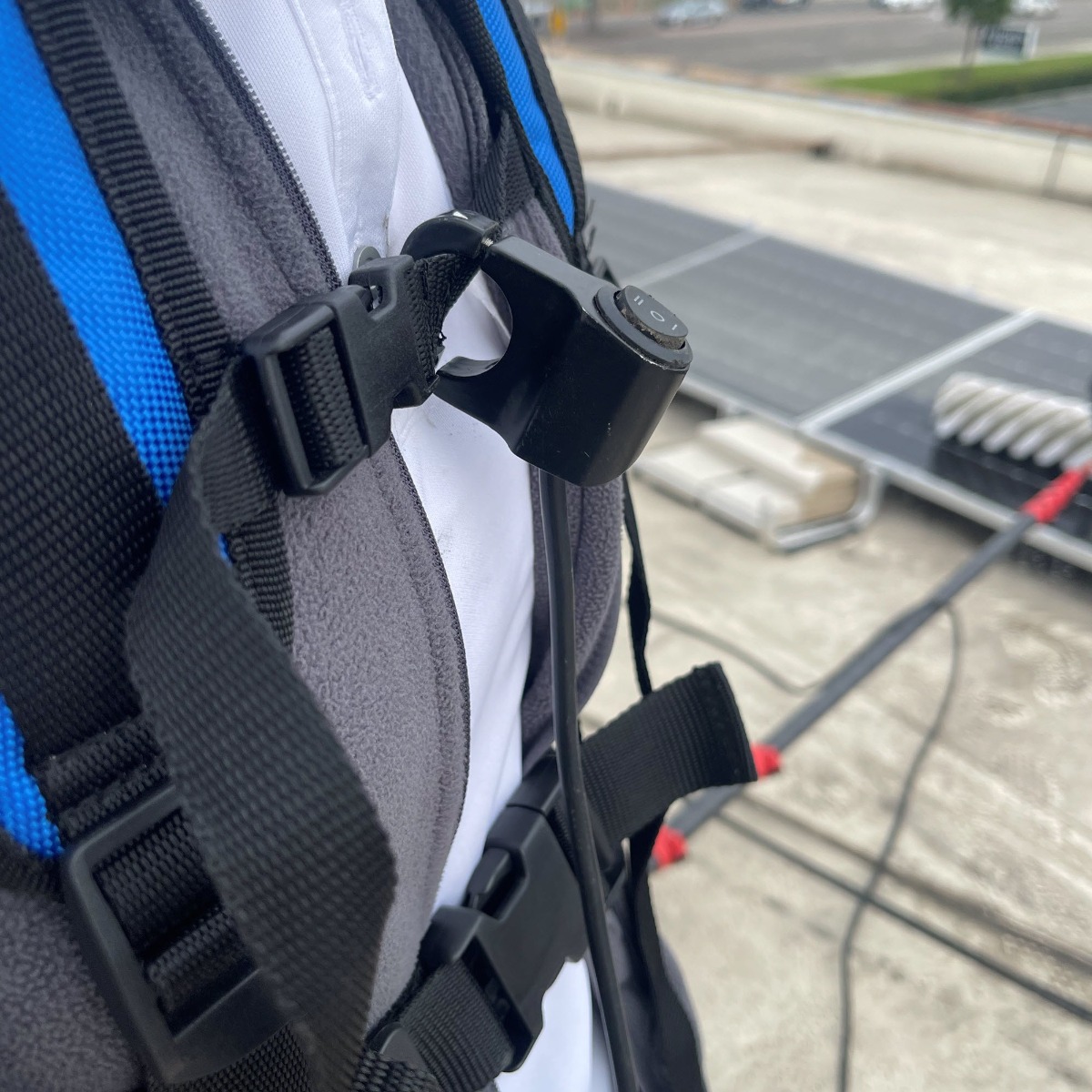
Power Switch allows for forward and reverse rotation of the brush, and power off, Stopping the Brush - Turning off the cleaning
- Close the telescopic lance’s valve.
- Turn off the Switch from the Power Supply/Battery
- Turn off the water supply
- Open the telescopic lance’s valve to discharge the residual pressure.
Specifications:
- Width: 39 in.(1000mm)
- Diameter: 5.9 in. (150mm)
- Weight: 16 lbs (8.1Kg)
- Bristle: 0.6 in. (15mm)
- Attachment: 3/8in NPT Thread
- Current Draw is up to 300watts nominal (Typical is up to 10 Amps 30V) a 400w (13 amp) 30V power supply is included
- The 110v Current Draw is less than 4 Amps
- Max. Water Temperature: 104° F (40° C)
Using water on glued parts may cause them to become detached. Do not use the unit on wood floors or parquet that are not well-sealed.
Be careful when cleaning doors, parquet, painted surfaces or surfaces coated with synthetic products, and aluminum panels.
Before using the brush, we advise performing a test on a portion of the surface that is not in view, to prevent damage or alterations during cleaning.
PRODUCTS TREATED – HANDLED OR GENERATED
Verify in the photovoltaic system’s operating manual the type of brushes that can be used for cleaning it, so as not to cause abrasions on the panels’ film.
It is important to avoid all operating situations that could cause repeated and unexpected stops of the brush’s rotation, such as those specified below:
- In the case of surfaces comprised of panels, the maximum distance between them must be 3 cm to prevent the unit from dropping into the empty space between one panel and the next.
- The surfaces must be as free as possible of protruding parts such as long screws, brackets, and terminals, which could obstruct brush rotation or rharm the bristles.
- This is a low water pressure brush, water can be from the tap, or one of many water pumps and water boost pumpes. Generally less tan 100PSI
- When not in operation, never allow the unit’s weight to rest on the rollers’ bristles so as not to bend them when resting.
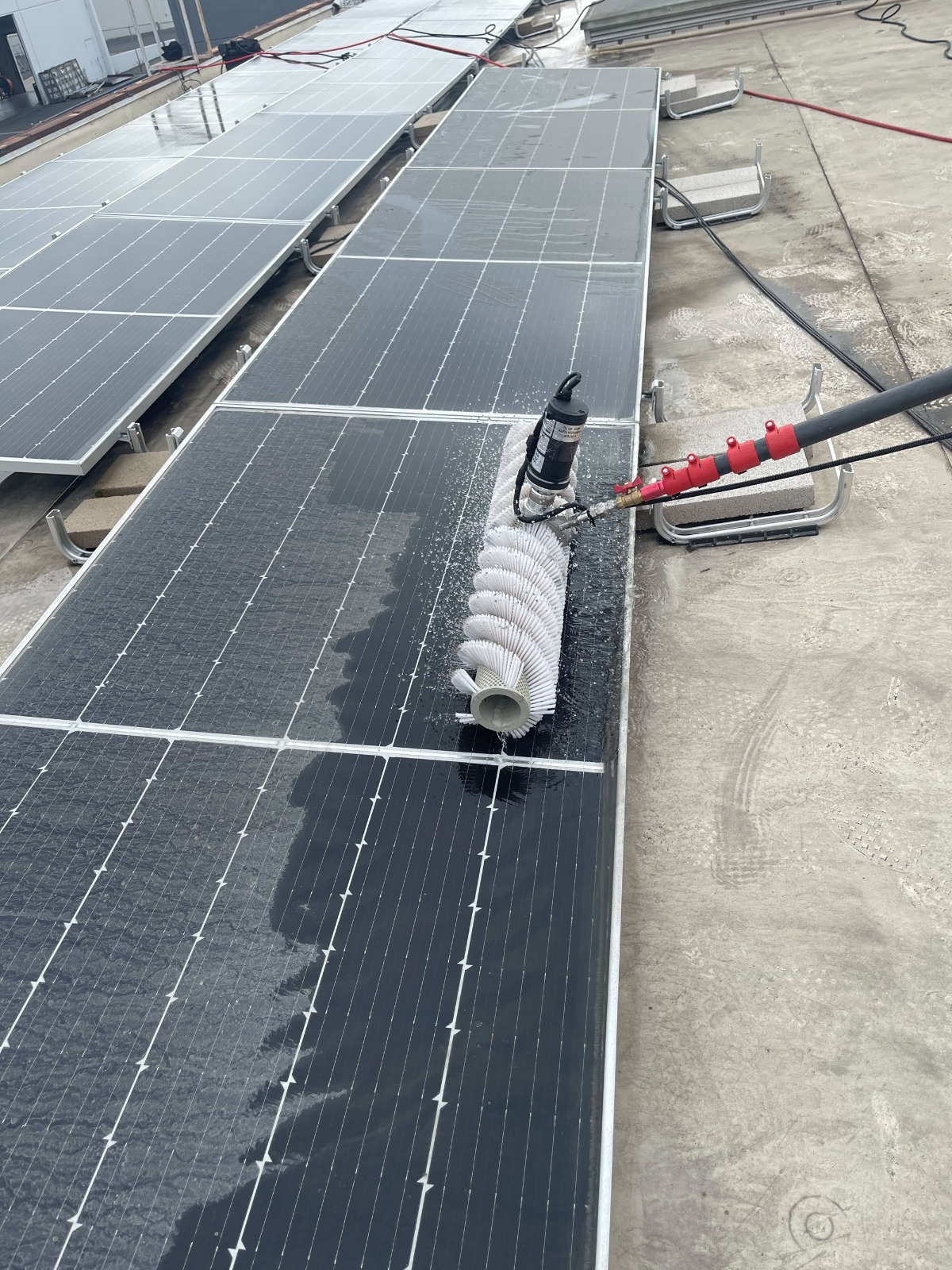

Brush with M22 Style Connection
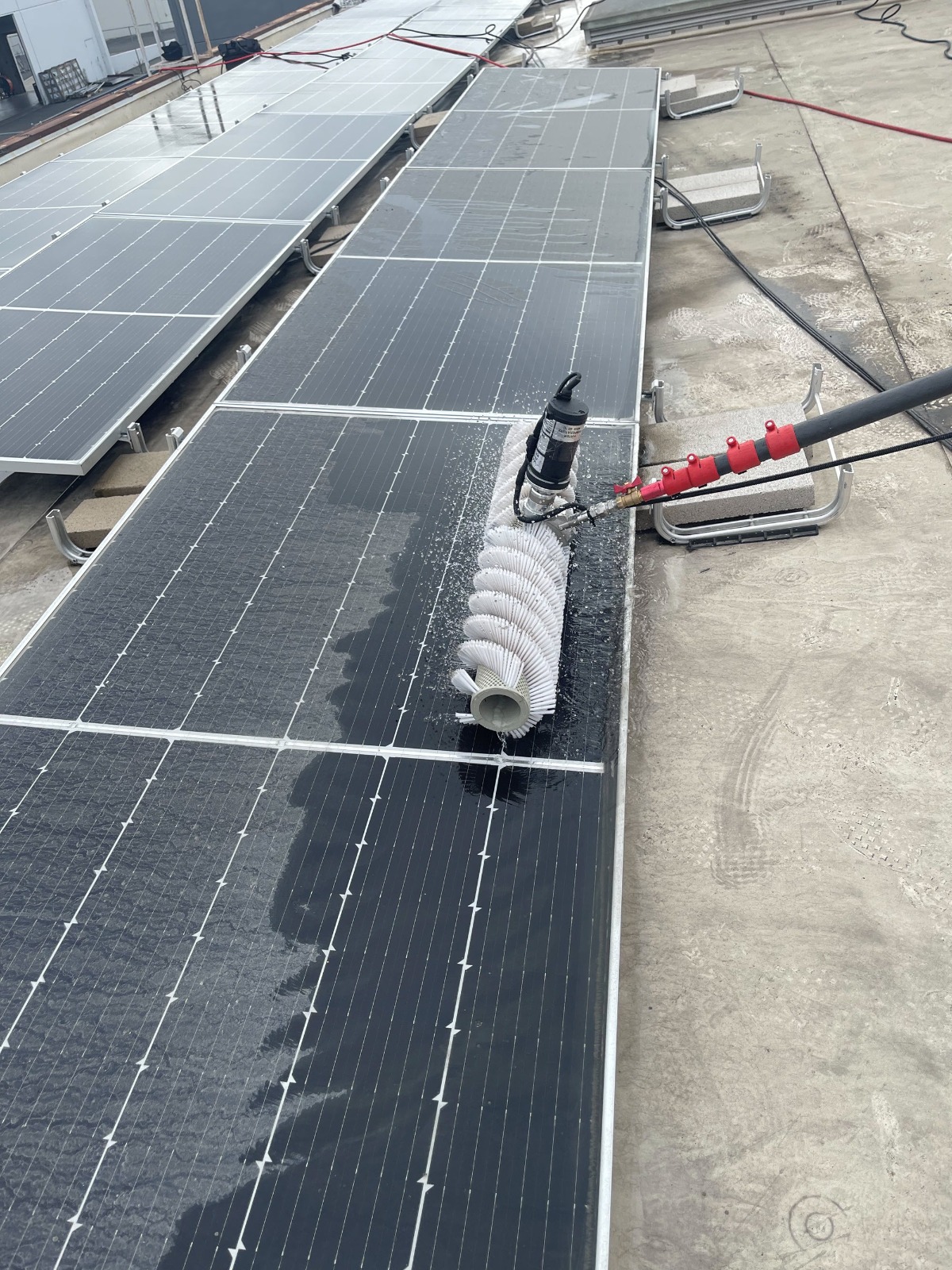
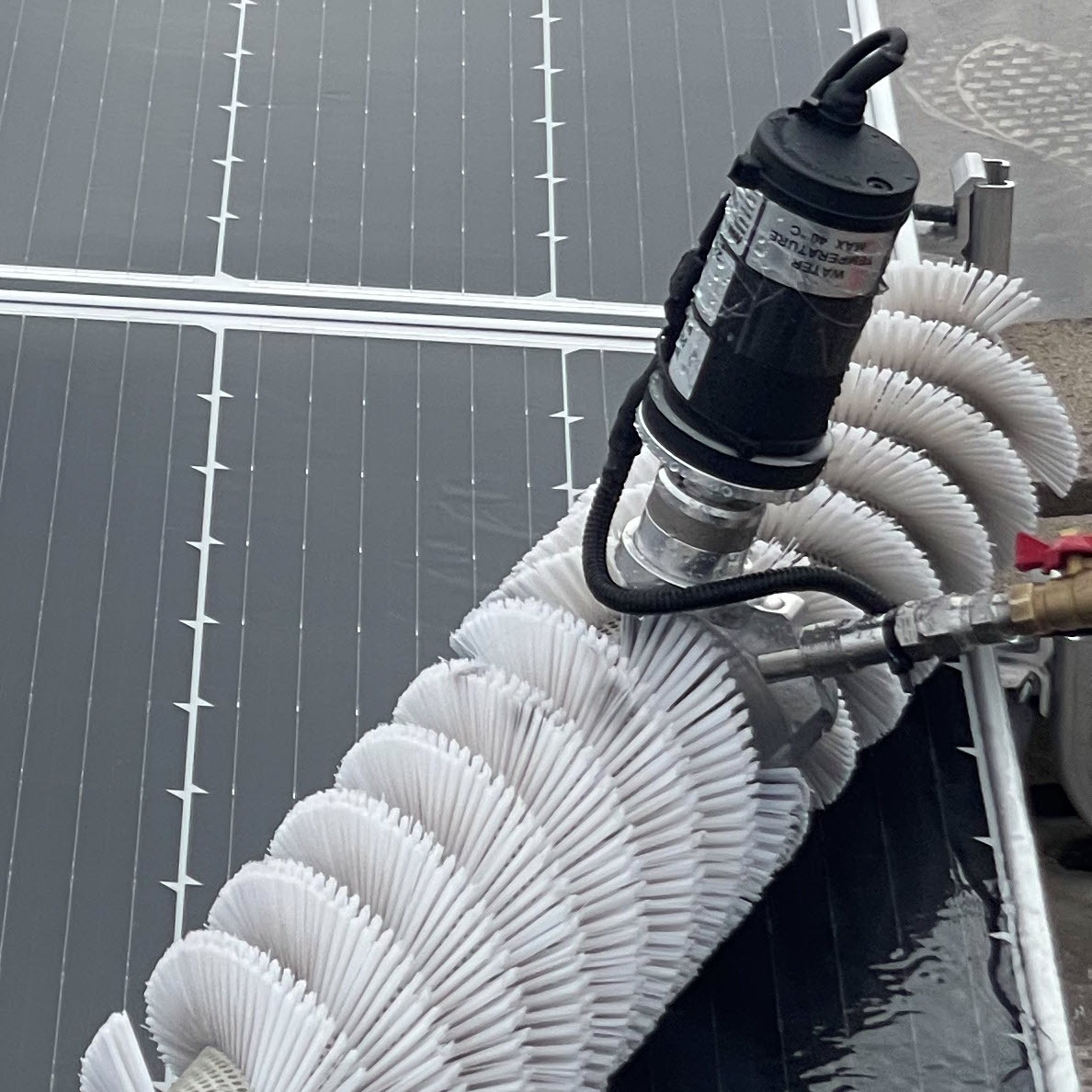

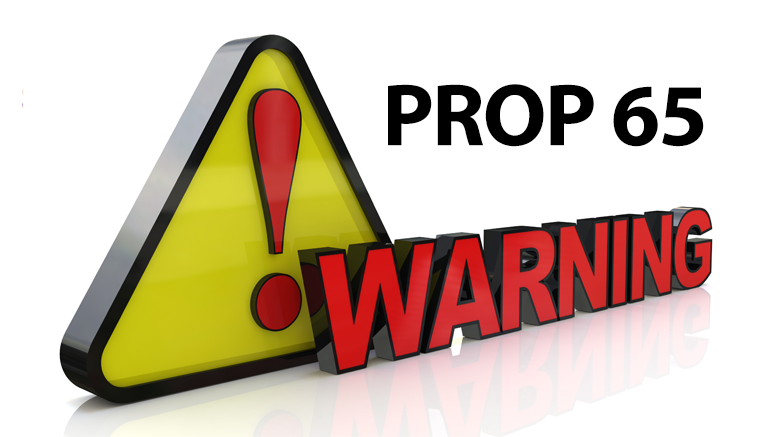
Proposition 65 requires businesses to provide warnings to Californians about significant exposures to chemicals that cause cancer, birth defects or other reproductive harm. These chemicals can be in the products that Californians purchase, in their homes or workplaces, or that are released into the environment. By requiring that this information be provided, Proposition 65 enables Californians to make informed decisions about their exposures to these chemicals. Proposition 65 also prohibits California businesses from knowingly discharging significant amounts of listed chemicals into sources of drinking water. Proposition 65 requires California to publish a list of chemicals known to cause cancer, birth defects or other reproductive harm. This list, which must be updated at least once a year, has grown to include approximately 900 chemicals since it was first published in 1987. Proposition 65 became law in November 1986, when California voters approved it by a 63-37 percent margin. The official name of Proposition 65 is the Safe Drinking Water and Toxic Enforcement Act of 1986.
The list of chemicals contains a wide range of naturally occurring and synthetic chemicals that include additives or ingredients in pesticides, common household products, food, drugs, dyes, or solvents. Listed chemicals may also be used in manufacturing and construction, or they may be byproducts of chemical processes, such as motor vehicle exhaust. For more information visit www.p65warnings.ca.gov/


